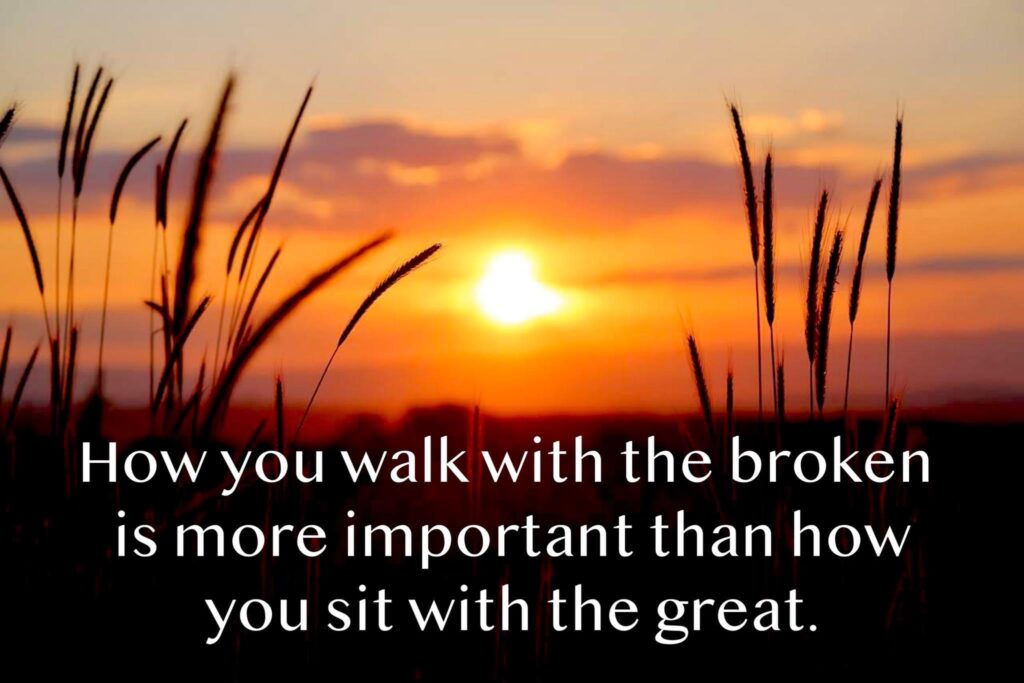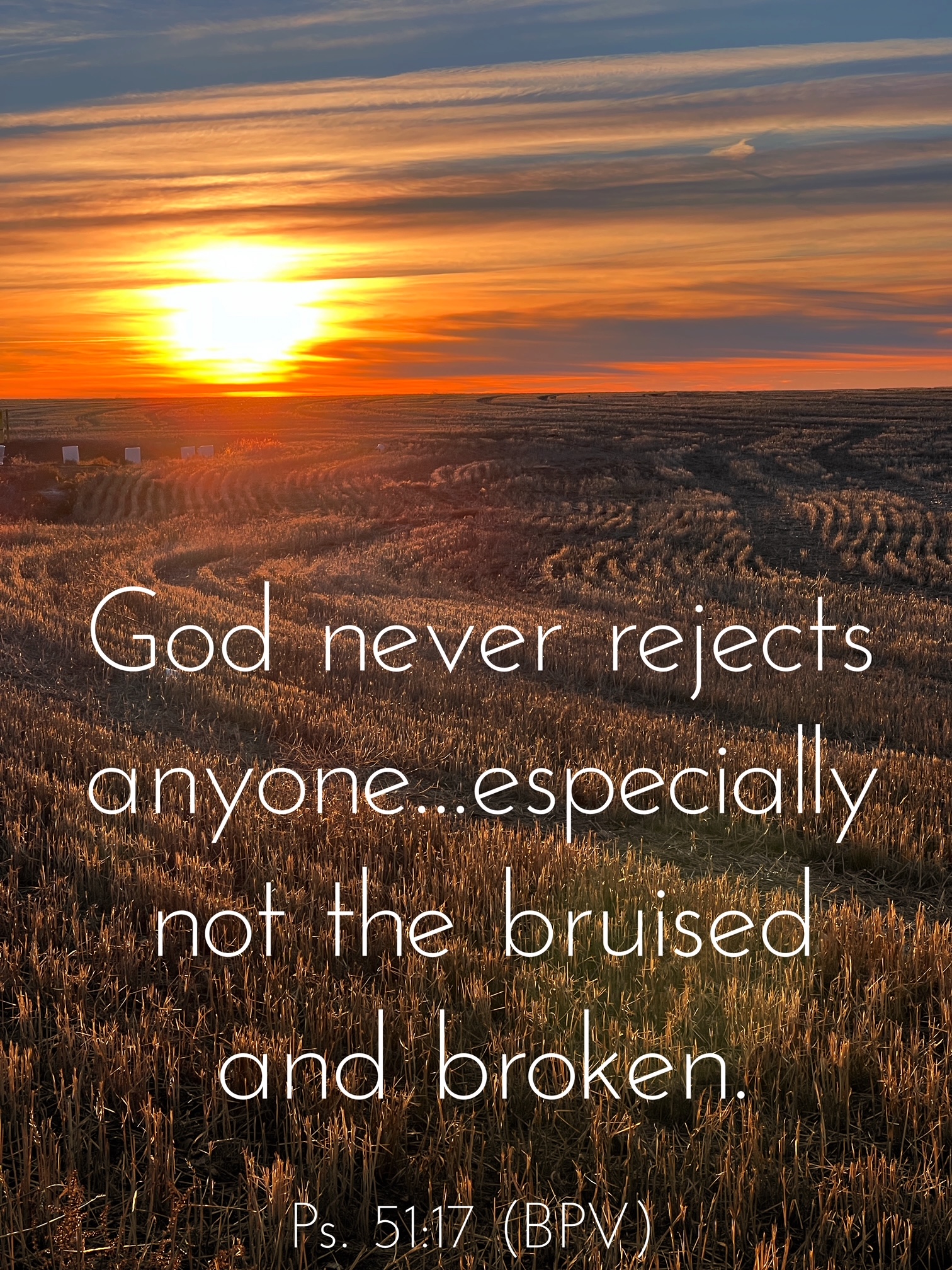We sat together at church one night. It was a midweek service, and the room was packed—for the most part, standing room only. There was, however, one spot next to me on the pew. A small place, but open, nonetheless. He came in late and squeezed in right next to me. We were shoulder to shoulder, and I was uncomfortable.
He smelled.
Badly.
He looked homeless, his hands were filthy, and his clothes looked like they’d never seen the inside of a washing machine.
I was trying to breathe through my mouth and surviving for the most part until the pastor asked us to take hands as he prayed.
I didn’t. I wouldn’t. And I know I embarrassed this poor guy by my actions, and I later felt ashamed.
Another day. Another time. A middle-aged woman sat in my office. Swearing. A lot.
Her oldest child, a sixteen-year-old boy, told her he was “fed up with her,” and he was moving in with his dad, who divorced her many years before. She felt betrayed, abandoned, and angry after all she had sacrificed for her boy over the years.
“How could he do this to me? Doesn’t he know what his father did to me? I hate that %$#^%*! I wish he would die!”
She was broken. Her son was, too. Sadly, that’s what happens between humans all too often. We wound each other by our words and painful actions.
Let’s own it. Loving the people we value is easy (or at least easier). When someone is like us, we tend to like them. When people do what we want, we have no problem accepting them into our world. When people are good, we are good with them, but if they cross us, we want to nail them to a cross.
Loving the unlovable, the messed-up, and the broken can really tweak our beak. Love is fine until it costs us something or we are uncomfortable or hurt.
Recently, I’ve been binge-watching The Chosen and just watched season four, episodes 1-3, in the theater. (Awesome, by the way.) I know it contains a lot of historical fiction (i.e., some people and stories not in the Bible), but I so appreciate the character of Jesus.
What has struck me the most is how Jesus consistently, compassionately, and deeply loved the broken and unlovely (guys like Matthew and the woman with the “issue of blood,” for example).
So, here are some takeaways for you to consider about why we must love like Jesus.
1. Because loving others, even the unlovable and messed up, is the second greatest commandment. (John 13:34-35)
2. If you don’t love the broken, there’ll be no one for you to love because everyone is broken. (Romans 3:2)
3. The broken might be closer to God than you think. (Psalm 34:18)
4. When you choose kindness and mercy, you experience more kindness and mercy. (Matt. 5:7)
5. Broken people sometimes have the most remarkable capacity to love you in return because they know how precious it is to be loved when you don’t deserve it. (1 John 4:19)
6. Because everyone has value, potential for restoration, and a God-given purpose. Sometimes, the least likely become the most used. (Judged 6; Luke 1)
7. Jesus loves the fractured, and nothing marks you more as His disciple than loving the disenfranchised outcast. (Luke 14:12-14)
On a scale of 1-10, when it comes to loving others like Jesus, I am far too often on the south side of 4 or 5. (Probably worse.)
But I am growing. Trying. Learning. And I am doing better at loving those who are hard to love because I know how often Jesus has loved me when I didn’t deserve it.
It’s true; we love Him and others when we see how much He first loved us.
And He did.
He still does.




